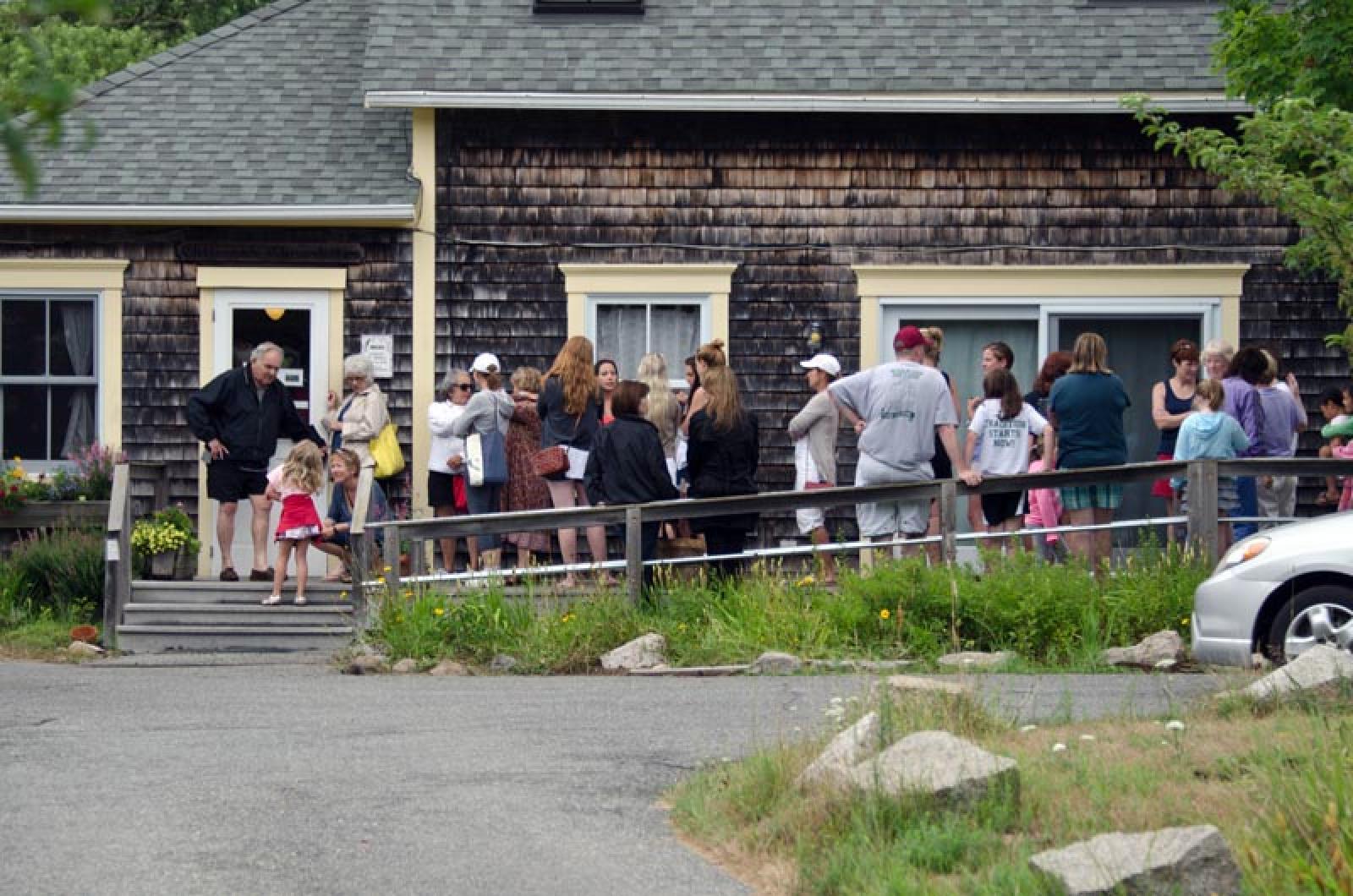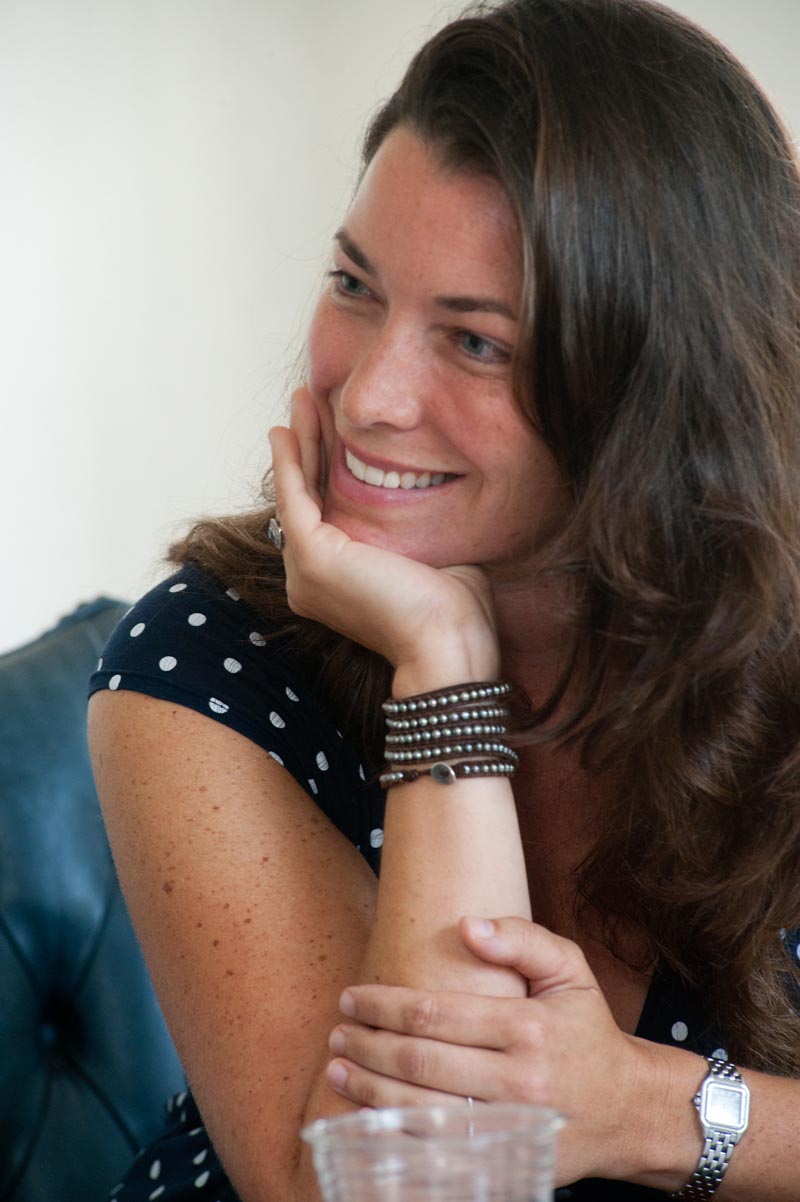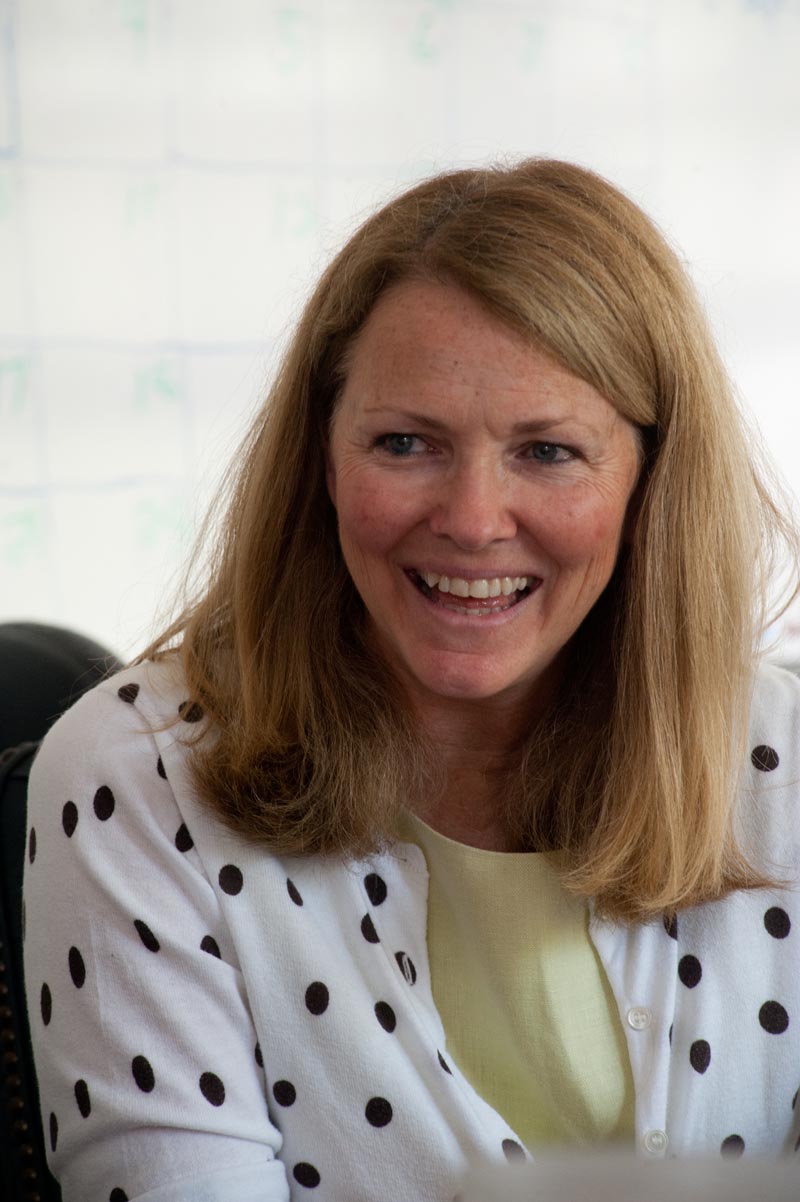As the calender flips toward fall, heralding the end of summer and what are some are calling a profitable season, local business leaders want people to know that there is life past Labor Day. There are hotel rooms and cottages to be had (at cheaper rates), and books to buy for cooler but quieter days at the beach.
“We almost don’t want to let them know about the secret of September,” said Sarah Nixon, the owner of the Menemsha Inn, the Beach Plum Inn, and the Home Port restaurant in Chilmark.
“Because we all think it’s freezing cold and wet and remote,” said Robin Kirk, the chief operating officer for Scout Hotel and Resort Management, which owns the Harbor View Hotel in Edgartown. “It’s actually romantic, haunting, special, a wonderful place of escape. Which if you use the right words . . . ”
“Brontë sisters novels,” finished Dawn Braasch, the owner of the Bunch of Grapes Bookstore in Vineyard Haven.
During a conversation at the Gazette Friday, business leaders said that nearly four years after the stock market collapsed, things were looking up this summer: rooms occupied, merchandise flying off the shelves. To keep business flowing during the other nine months of the year, they called for greater communication between businesses and among the Island towns.
But when it comes to summer, people are coming. At the Harbor View, Mr. Kirk said, revenue was up this summer, despite a relatively flat, disappointing July.
“August was just spectacular,” he said, with the Harbor View and its sister property, the Kelley House, basically running at occupancy. “But we’re charging infinitely more for it, and the average rates were higher, and August is going to be the best August by far on record,” he said.
“For us, generally, it’s . . . sort of Boston July, New York August,” Mr. Kirk said.
Mr. Kirk, who is British, also reports “tons of Brits.”
“And not just the Norman Fosters of the world,” he joked, adding that his compatriots don’t mind the off-season weather. “So more Europeans certainly . . . and [an] uncannily large number of Canadians.”
On Main street Vineyard Haven, where Bunch of Grapes recently relocated to a smaller space at the former Bowl and Board building, Ms. Braasch said sales are exceeding expectations, despite a few rough years.
Ms. Braasch bought the store in 2008, at the time the bottom was falling out of the stock market and e-readers were starting to cut into book sales. She said this year sales were better, despite a smaller space.
“For the first time, it’s exciting again, and that’s the feel on Main street in Vineyard Haven,” she said. “People are understanding the need — that if you love local independent bookstores, all I’m asking is that you spend a part of what you spend on books in my store.”
In Menemsha, Mrs. Nixon said she and her staff have been in “rapid response mode” to respond to changing needs. But after a tough few years, she, too, said things are looking up. “We’re 4 per cent ahead of 2008, so that’s a message. That’s my benchmark and that’s a fact,” Mrs. Nixon said. She reported many bookings from northern European visitors.
According to a June 2012 trends report for the Cape Cod area, including Martha’s Vineyard and Nantucket, hotel rooms had an average 66.6 per cent occupancy rate, with an average daily rate of just over $261.
The report, prepared by PKF Consulting, said the statistics showed an increase in occupancy of 7.4 per cent compared with June 2011; the Islands sub-market had the most occupancy growth with an 11.7 per cent increase. Average daily rate increases were tracked at 5 per cent.
Part of the key to future success, the business owners said, is to work together to bring visitors during the off-season months.
“Not all of my clients, for example, have a disposable income, so our thing was . . . make it approachable, making it doable, be able to share this Vineyard experience with them at not such a high price,” Mrs. Nixon said.
“I think we’ve been forced to change our ways . . . I feel like instead of thinking of each other as competition, we have to think of each other as partners in crime,” she added.
“If we work in a complementary manner, we are only creating happy people who want to come back. Our wells are deep with resources. I mean each pocket of this Island is so rich in its beauty, in its community. We need to link back and forth; we don’t need to sit in our little corner and get ready with our boxing gloves.”
At the Harbor View, Elizabeth Rothwell, director of marketing and events, is carving out a new approach to activities, from comedy shows to New Year’s Eve fireworks and a Fourth of July celebration. Aquinnah artist Arlen Roth and his daughter Lexie have been performing on the porch Wednesday evenings, attracting a large up-Island following.
“I think it’s so important,” Ms. Rothwell said. “I grew up here, so I feel very personally connected to the Island community, but we’re a year-round hotel, it can’t be ignored. We had a lot of fun with our Fourth of July party . . . it was just so festive and so fun, so we’re looking forward to next year.”
Mrs. Nixon praised Ms. Rothwell for her fresh approach that involves a wide array of sectors of the Island community.
“You’ve really done a beautiful job of being creative and listening to not only what visitors want, but what Islanders want. We’re only as good as our little community, and you’ve done a really good job thinking out of the box,” she said.
“That’s the beauty of our Island,” Mrs. Nixon said. “Not only is our topography so diverse, our communities are diverse. . . I feel that we would greatly benefit from thinking, do we create some kind of task force so we connect this web of our communities? Because all of us will be doing exponentially better if we were actually communicating with one another.”
Ms. Braasch agreed. “Hearing you talk about having big groups of people in September and October, I’m thinking . . . that’s a wasted opportunity that I don’t know when there are big groups of people,” she said.
“I would love to know that, when you guys have big bookings. I can say to the [author] publicist then, look, this is a captive audience, there’s not a lot you can do in October, you’re not going to the beach . . . that’s exciting to me because we don’t have a hard time making money in July and August — we have a much harder time sustaining through the year.”
She continued: “Now I’m different than they are, in that I’m dealing with a fixed-price product. I can’t raise the price when it’s summer to make more money. There are only so many sales that I can do in a day. But why aren’t we doing something together? Even in the town of Vineyard Haven I struggle to get business owners to come together and realize the value of the film festival in our town or the regatta in our town and I think it’s just so important.
“It’s the way we’ve become sustainable . . . not what we do in the summertime, which is lovely, but it’s really how we identify ourselves in the off-season.
“I feel sometimes like we get very much in our own little towns and don’t get beyond that.”
Mrs. Nixon picked up the thread. “I hope that having a rough little patch of a few years has forced us to think about how do we communicate better, how do we connect better?” she said. “Anybody who says that we haven’t had a rough patch has been delusional. They’ve missed it, they’ve been asleep at the wheel. I think it makes a huge, huge difference, that connectedness.”
Perhaps part of the key comes back to the secret of September. “It is crazily beautiful,” Mr. Kirk said. “Come in the fall, stay with us for half or a third of what you’re paying in the summer. And don’t have all the tourists. Because the interesting part of all these tourists: they don’t want to be tourists . . . They want to be part of this off-season club. And we’ve had a lot of success.”
Returning to an earlier theme, he said: “We have so much demand here in the summer. Even all the images I’ve seen of the Vineyard in the outside world are summer images, it’s a summer place . . . we’ve been reinforcing this time and time and time again. It has to be absolutely conscious — no more of these summer images going out.”
In a vignette that tells larger story about the last few years, Mrs. Nixon said: “This gentleman called and he said ‘I’ve lost my job, there’s no Menemsha for us this year.’ Twenty-seven summers of Menemsha, with their family, with their grandchildren. And I said ‘well there’s going to be a Menemsha for you this summer. You’re going to come on us, and you’re going to stay with us for that week, and I’m sure you’re going to come back.’
“That story told all of it to me. Because here was somebody who, their bottom fell out, they don’t have a job, they can’t pay their mortgage and they certainly can’t go on vacation.
“But now it’s two seasons later and he’s back on his feet. Twenty-seven summers and he can’t come to Menemsha? That in itself, it just told a narrative that made a lot of sense and was sad. He knew that it wasn’t easy for us to do that; it definitely wasn’t easy for us to do that, but it was important.”
“It’s what we do here,” Ms. Braasch said.








Comments (2)
Comments
Comment policy »